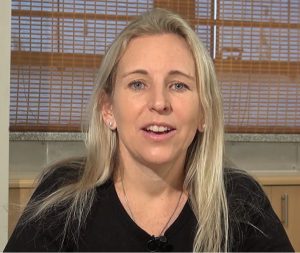Our high-achieving team of Mercy Perinatal researchers has taken a significant step to curb the pregnancy scourge preeclampsia.
The prestigious British Medical Journal published the groundbreaking results of a decade of research in laboratories at Mercy Hospital for Women in Heidelberg, Australia, and Tygerberg Hospital in Cape Town, South Africa.
The Mercy Perinatal team, led by Professor Stephen Tong and Professor Sue Walker AO, with support from the University of Melbourne, has reported that a diabetes drug, Metformin, may be an unlikely treatment for preeclampsia.

Professor Stephen Tong
Stephen says the impact of preeclampsia is distressing and relentless.
He points out that worldwide, preeclampsia annually claims the lives of 500,000 unborn babies and up to 70,000 expectant mothers per year.
“No drug has been discovered that slows the disease from progressing to cause life-threatening injuries to the major organs of a mother — that is, until now,” says Stephen.
“Preeclampsia, which sets in at an early gestation and is called preterm gestation, is a highly dangerous variant of the disease where the risks are even higher to baby and mother.”
While preeclampsia may strike close to home, its epicentre is in resource-constrained settings like South Africa where the prevalence is higher and there are limited healthcare resources.
The leading researcher for this trial is Cape Town-based Associate Professor Cathy Cluver, who undertook a fellowship with the Mercy Perinatal team. Cathy observed some of the initial work that focussed on the identification of a drug that would fight preeclampsia.

Professor Cathy Cluver
Cathy and her team have conducted trials with 180 women with preterm preeclampsia at between 26 and 31 weeks of pregnancy. The results are showing that women taking Metformin were managing to keep babies in their wombs for seven or eight days longer.
Metformin could be used to save the lives of thousands of mothers and their infants.
For Sue, the early signs are outstanding.
“When preterm preeclampsia sets in, we are often forced to deliver the baby prematurely, as this is the only way to reverse the disease process and cure preeclampsia,” Sue says.
“While seven or eight days might not sound a long time, each day at that stage of a pregnancy is precious.”
“And that’s what gets us out of bed and brings us to work every day — the vision that we might be able to reduce the number of deaths of mothers and babies who are lost due to preeclampsia globally every year.”

Professor Sue Walker AO
Cathy’s trials will now continue with a sample of 500 women. “If our findings are confirmed, it may mean that Metformin could be used to save the lives of thousands of mothers and their infants,” says Stephen.
Such confirmation would demonstrate how Mercy Health is, yet again, stepping up and safeguarding some of the most vulnerable within global communities.
Last reviewed December 19, 2021.



